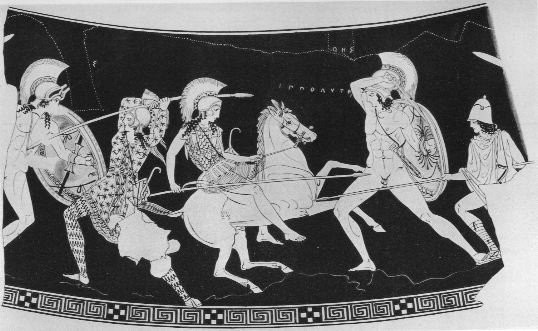Well I know many of you are not interested in historical accounts. I personally am but thats only because its a hobby and history is something I greatly enjoy studying Its just a matter of what you view as being relevant. It also helps me to understand Witchcraft and what led up to the invention of Wicca if I have at least a basic understanding of these older beliefs as they pre-dated Christianity and they were very different in many respects than what takes place today. We are only mimicking something very ancient.
Its just another perspective in which to view this. Speaking of which, I was just on a website that was making the claim that the Witch Hunts were "overblown" and "exaggerated". They were stating that not near as many women were put to death as claimed. You can guess what type of website I found this on so I wont say. This is why history is important and even though watching that video on A&E that upset James was a bummer, he did his part in understanding what occurred and not forgetting these people and what they went through at the hands of the church.
I may have been misunderstood. So allow me to clarify.
I too find history and folklore interesting. However, I question how valuable it is for the study of witchcraft.
You mentioned the A&E video of the burning times. That truly wasn't about the art of witchcraft at all truly. Most likely the vast majority of women who were accused of being 'witches' didn't even practices 'witchcraft' per say.
In fact it's a known fact that many of the women who were accused were actaully Christians themselves. There were probably a lot of athesits accused, and anyone who practiced any sort of eastern mysticism, etc.
So the burning times truly had very little to do with true witchcraft and had a whole lot more to do with how utterly stupid and insane Christianity is.
Also, even when you study the actual folklore 'witches' you'll find a very wide variety of customs and superstitions. All of which may not fit in with your own personal understanding of what witchcraft means to you.
Just like Hollywood, many people over the centuries made witchcraft into someting sensational. Far more based on superstition than practical useful information.
To say that someone is a 'Witch' is truly about as ambigious as saying that someone is a 'Christian'.
The difference between what different 'Witches' believe is just as diverse as the difference between what different 'Christians' believe.
All Christians agree that Jesus was God. All Witches probably agree that the Moon Goddess is God in a similar sense. So titles and lables are nearly ambigious.
For example, to say that someone was a Witch and then found Jesus is just as meaningless to say that someone was a Christian and then found the Moon Goddess.
The Christians would claim that the person who left Christianity was never truly 'saved' in the first place. But the same idea could be applied to the Witch. It could be claimd that the person who left witchcraft never truly understood what it was really about.
This is why historical study of "Witchcraft" itself for the purpose of learning Witchcraft is someone meaningless.
This is also why I like Penczak's approach. Many "tradtional witches" don't like Penczak's approach because he looks at all shamans in all cultures around the globe. He's looking at what people do spiritually.
However some people who study witchcraft might focus on say, "Celtic Folklore". So from there point of view it's not 'Witchcraft' unless it fits in with what the Celtics believed.
To me that's when it becomes dogmatic and more like studying the Bible. Instead of studying the spiritual concepts they begin to worship the mythology and folklore of a specific culture.
So I guess I'm just looking at witchcraft and shamanism in the greater abstract view, and not has it has been molded by any single culture.
In fact, I thank you for sparking this idea, because I need to mention this perception in my book of shadows.














